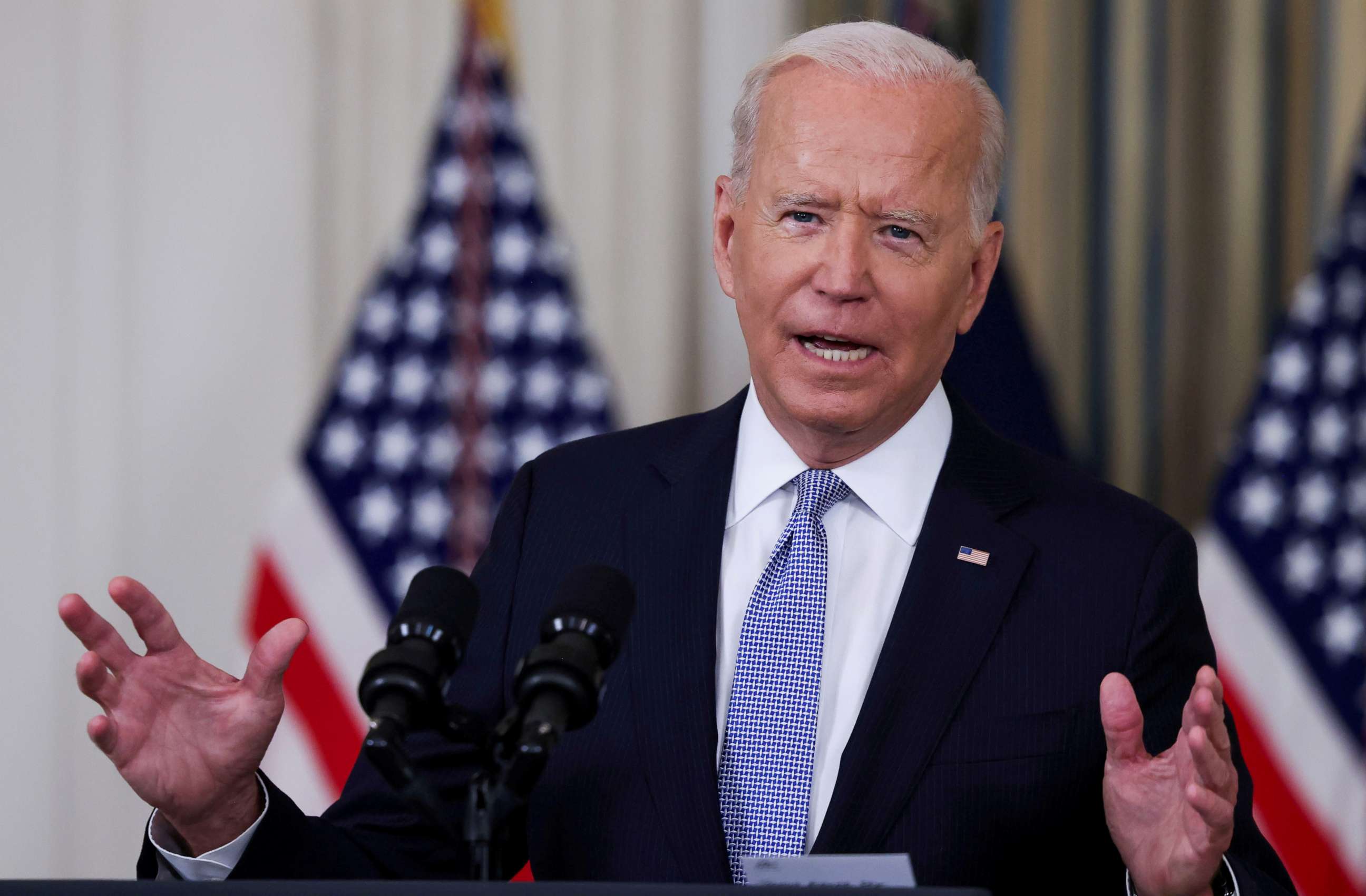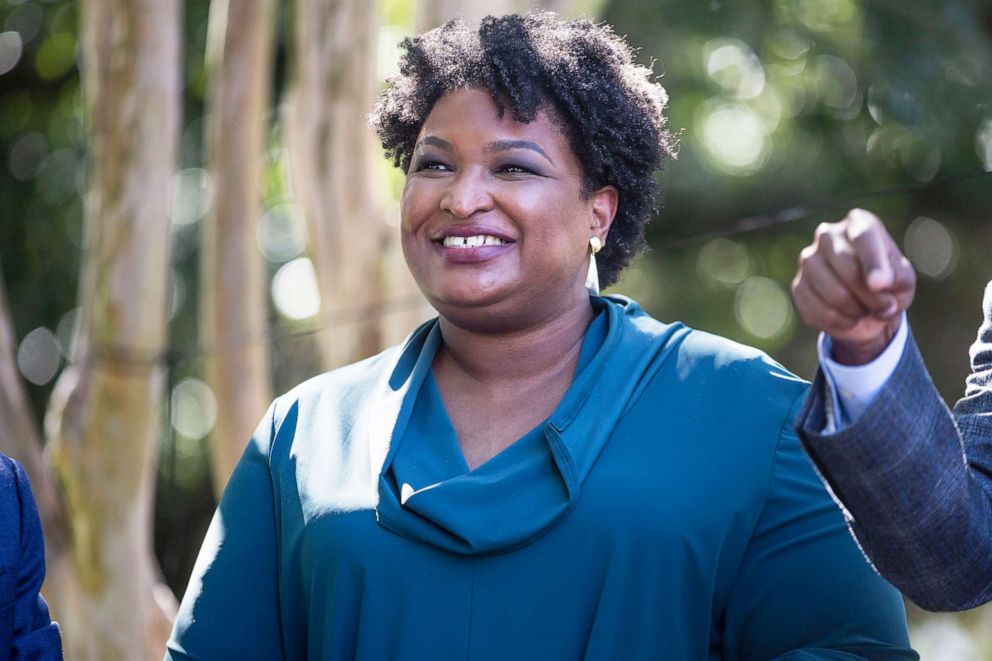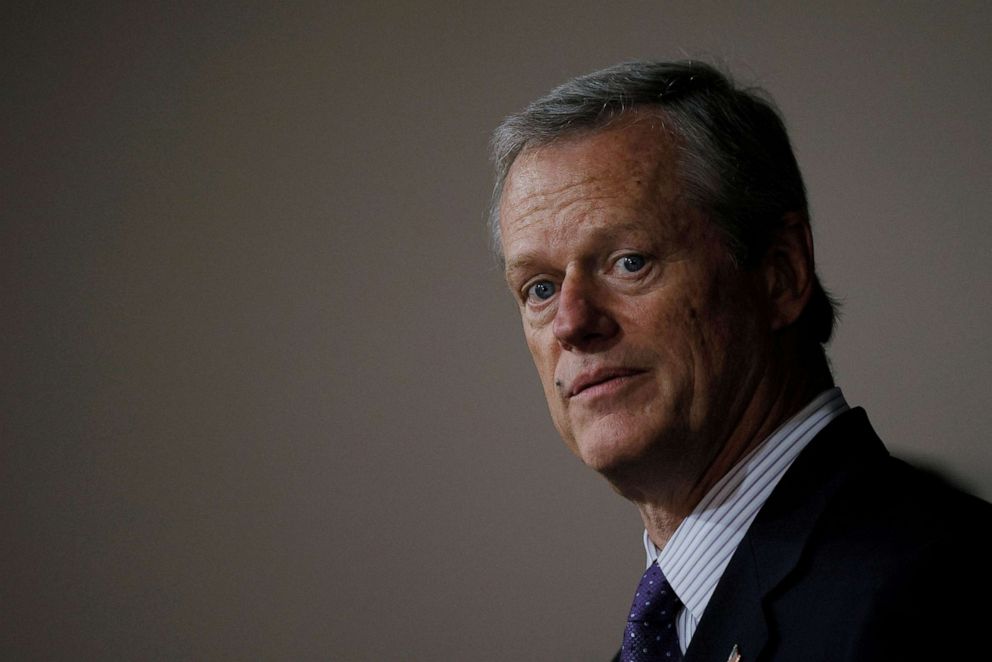Mandate backlash complicates COVID-19 politics: The Note
House conservatives demand any spending extensions defund the vaccine mandate.
The TAKE with Rick Klein
The country won’t shut down again because of COVID-19 -- at least, not anytime soon.
But the federal government just might, and possibly very shortly.
That says something significant about the state of pandemic politics, which have been shifting even as the virus has been producing new and troubling variants. President Joe Biden on Thursday will outline his winter plans for confronting COVID-19, with many familiar steps around vaccines, boosters and testing -- including free at-home testing -- but also having made a vow to avoid further lockdowns or shutdowns.

Meanwhile, Congress’ recurring fight to fund the government has a new twist: House conservatives are demanding that any extensions of federal spending defund the Biden-imposed vaccine mandates. The House Freedom Caucus wants Senate Minority Leader Mitch McConnell to use "all procedural tools at his disposal" to make that a condition of avoiding a Friday shutdown.
White House press secretary Jen Psaki cast that strategy as a pro-Trump effort to allow a minority of people who refuse to get vaccinated to be "free to infect their coworkers, our children."
But opposition to mandates and other government-ordered restrictions is broader than that. That’s a fact that the Biden White House is at least tacitly acknowledging in taking lockdowns off the table and easing enforcement provisions around vaccine mandates for federal workers.
The RUNDOWN with Averi Harper
Stacey Abrams' gubernatorial campaign announcement sets up a potential rematch with Gov. Brian Kemp that could be even more bitter than her first attempt.

Abrams, who would be the nation’s first Black female governor if elected, comes to this statewide race after amassing a prominent national profile since her 2018 loss to Kemp by only 1.4 percentage points. It’s a fact Republicans have already seized on since her Twitter announcement Wednesday.
Kemp has claimed Abrams is on a "never-ending campaign for power," and the Republican Governors Association took similar aim. "Stacey Abrams is once again using Georgia to boost her own star while she plots a path toward her real career goal: president of the United States," Maddie Anderson, a spokeswoman for the group, said.
Republicans in the state have been organizing for months to push back against her run. Allies of Kemp and former Republican Sen. Kelly Loeffler launched the group "Stop Stacey" in February, arguably illustrating concerns of how strong a candidate Abrams could be this time around.
In addition to deep partisan decisions, much has changed in the Peach State since Abrams’ 2018 run, namely the rules of engagement around elections because of Georgia’s restrictive voting law. While some worry the law could disproportionately impact voters in blue areas of the state, others see the voting restrictions as a potentially motivating factor in get-out-the vote efforts for Abrams.
The TIP with Alisa Wiersema
Massachusetts Gov. Charlie Baker's decision not to seek another term in office signals a potential turning point in state-level Republican politics.
Baker was one of a handful of Republican executives governing Democratic states throughout the Trump years and was a vocal critic of the former president during his tenure. Even so, the two-term governor was able to transcend partisanship amid an increasingly tense political environment and remains broadly popular among constituents.

Massachusetts has a long history of backing Democrats, so it's very possible the next gubernatorial candidate to lead the Bay State comes from the left. But the imminent open contest also raises the question of whether a traditional GOP candidate who runs on fiscally conservative and socially moderate (or even liberal) policies could ever make it out of a post-Trump era primary -- even in friendly territory.
In the meantime, Republican state leadership is wasting no time voicing their preferences regarding the direction future gubernatorial hopefuls take.
"We’re turning a new page here in Massachusetts," Massachusetts Republican Party Chairman Jim Lyons said in a statement, adding, "Our party remains committed to the strong conservative values of freedom, individual liberty, and personal responsibility. We look forward to working with President Trump as we continue to rebuild the Massachusetts Republican Party."
THE PLAYLIST
ABC News' "Start Here" Podcast. Thursday morning’s episode begins with the dramatic Supreme Court arguments on a Mississippi law that bans abortion after 15 weeks. ABC News Senior Washington Reporter Devin Dwyer tells us his takeaways on the pivotal case from inside the high court. Then, ABC News Senior National Policy Reporter Anne Flaherty breaks down the White House's plan for responding to COVID-19 this winter. And, a 15-year-old Michigan teen has been charged in a deadly high school shooting. ABC News' Trevor Ault joins us from Oxford Township with the latest in the investigation. http://apple.co/2HPocUL
WHAT YOU NEED TO KNOW TODAY
Download the ABC News app and select "The Note" as an item of interest to receive the day's sharpest political analysis.
The Note is a daily ABC News feature that highlights the day's top stories in politics. Please check back tomorrow for the latest.




